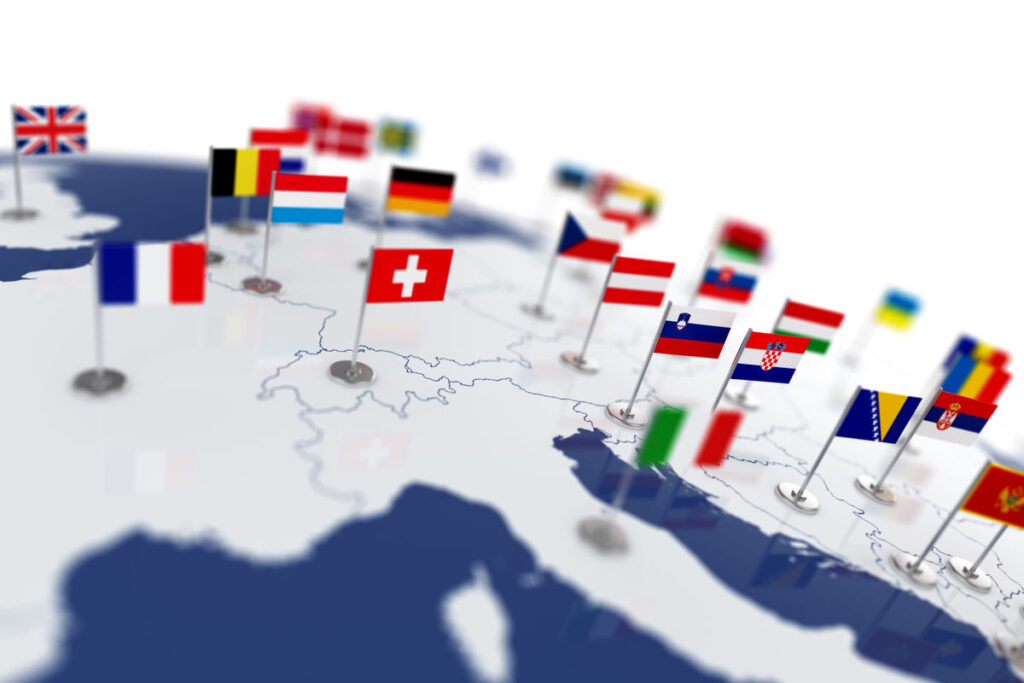
Travelers planning a European vacation in 2025 should be aware that many popular destinations are cracking down on bad tourist behavior with fresh bans, restrictions and fines.
From beach smoking prohibitions to restrictions on selfies and even fines for wearing flip-flops while driving, authorities across the Continent are stepping up efforts to manage overtourism, while preserving local culture and environments.
With record numbers of visitors expected this year, cities and regions are introducing rules aimed at limiting disruptive behavior and protecting fragile landmarks. The measures range from relatively straightforward regulations to surprising new restrictions that could catch casual tourists off guard—and hit their wallets hard.
Here is a rundown of some surprising ordinances that have been instituted across Europe to help keep tourists’ behavior in check.
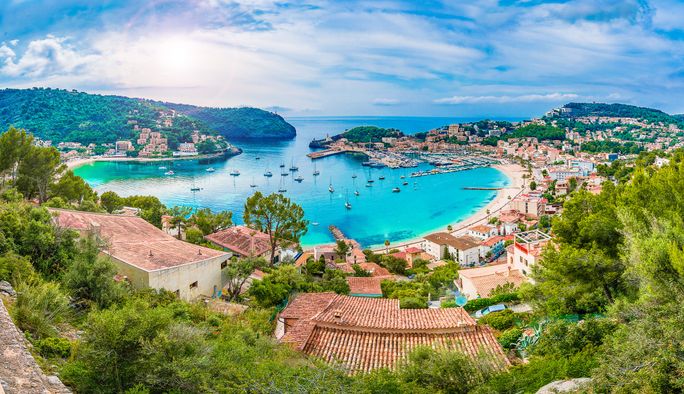
Mallorca, Spain. (Photo Credit: Serenity-H / Adobe Stock)
Spain
Spain is setting the tone with some of Europe’s strictest tourist rules, Forbes recently reported. Smoking on beaches is now prohibited in many popular spots—including the Costa del Sol, Barcelona and the Balearic Islands—with violators facing fines as high as €2,000 (about $2,344).
Even vaping could land you in hot water, as doing so indoors can be treated just like smoking, resulting in similar penalties in parts of Spain. Cork Beo reported that vape aerosol can set off hotel smoke detectors, triggering fines, cleaning fees or even the cancellation of your stay.
Planning to pee in the ocean or stroll away after saving a beach lounger? That could cost you, too. Public urination, including in the sea, is fineable up to €750 (around $879) in coastal towns like Marbella and Vigoup. Meanwhile, reserving a sunbed and leaving it unattended for hours could lead to a €250 ($293) penalty in hotspots like the Canary Islands.
And fashion faux pas can also hit your wallet. Walk around city streets in just swimwear in places like Malaga or Barcelona, and you may get slapped with a fine. Driving in flip-flops isn’t officially illegal, but if police believe your footwear is unsafe, they can issue a fine of up to €200 ($234).
Nightlife hotspots like Ibiza and Mallorca are also cracking down. Party boats and pub crawls are out, and drunken behavior can now rack up fines as high as €3,000 ($3,516).
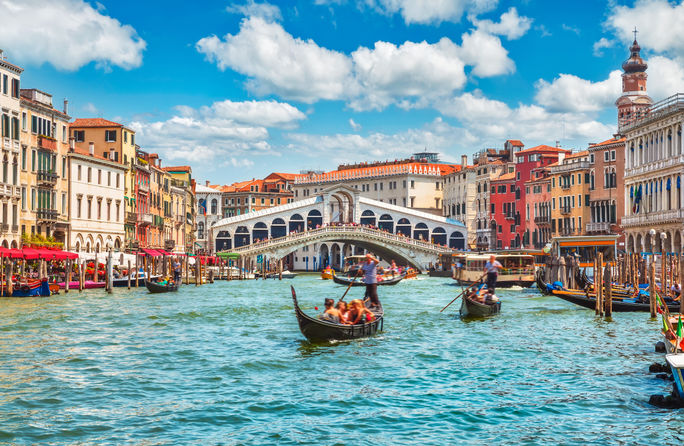
Bridge Rialto on Grand canal in Venice.
Italy
Italy is feeling the strain of overtourism, and it shows. Venice now charges a daily entry fee of between €5 and €10 ($5.86–$11.72) during peak periods for visitors without overnight hotel bookings, with fines up to €300 (about $352) for those caught skipping payment. The city has also banned swimming in canals, the use of loudspeakers, and large tour groups.
In Portofino, you might want to keep moving—literally. Lingering in certain areas for selfies could earn you a €275 fine (about $322), according to The Independent. Cliff diving and swimming in dangerous spots at Lake Garda has seen tourists fined up to €700 (about $821), and even a raucous game of beach football could cost you €600 (about $703).
Dress codes are enforced, too. In Sorrento, walking around town in swimwear—anywhere besides pool areas or the beach—could result in a €500 fine (about $586).
On the island of Sardinia, trying to take home a souvenir of a shell or pebble from the beach can be an expensive mistake. Pocketing such keepsakes from protected coastal areas could land you with a fine of up to €3,000 (around $3,516).
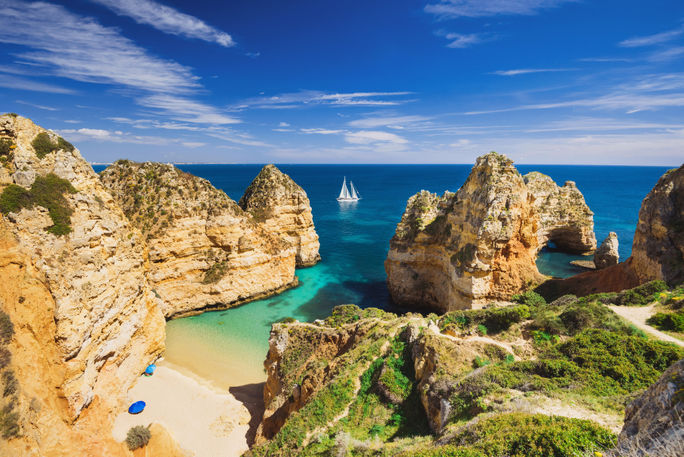
Beautiful bay in Algarve region, Portugal. (Photo Credit: kite_rin / Adobe Stock)
Portugal
Portugal is taking a tougher stance on disruptive tourist behavior, particularly in popular coastal areas like Albufeira. There, simply walking around town in swimwear can cost visitors up to €1,500 ($1,758), with even steeper fines for public nudity. Authorities are also cracking down on street drinking, spitting and public urination.
Noise is another major concern. Loudspeakers are now banned on many beaches, and breaking the rule could result in a staggering fine of up to €36,000 ($42,197). In an effort to reduce late-night disturbances, some regions are also cutting back bar hours.
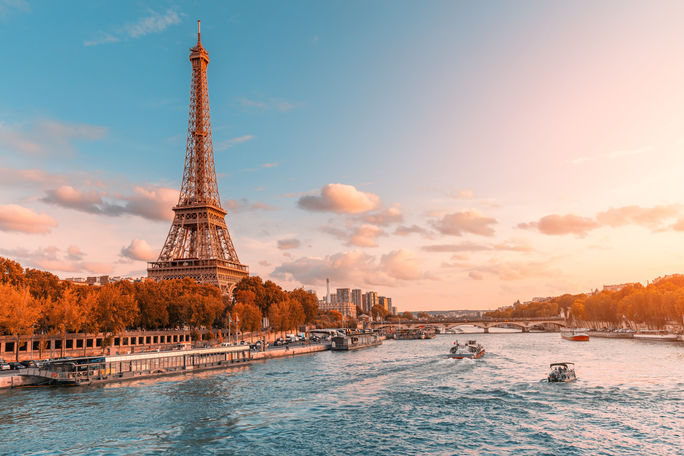
The Seine River in Paris (Photo Credit: Adobe)
France
French officials are also stepping up efforts to encourage more respectful behavior from tourists. In Paris, that dreamy picnic with wine and cheese along the Seine may sound idyllic, but drinking alcohol in many public spaces is actually prohibited. Violators can face fines up to €135 (around $158), so it’s best to check local rules before uncorking that bottle.
According to the Economic Times, France will also enforce a sweeping outdoor smoking ban covering beaches, public parks and areas near schools, starting July 1, 2025, with violators facing penalties of €114 ($134).
And yes, France really does have its own version of the fashion police. Several towns along the Côte d’Azur, including Cannes, have banned skimpy swimwear away from the beach. Walking around in just a bikini or going shirtless can lead to fines of up to €38 ($45).

Santorini in Greece (Photo Credit: maglara / Adobe Stock)
Greece
Over in Greece, the islands of Santorini and Mykonos are capping daily cruise arrivals and imposing a €20 ($23) per-person fee during peak months. Nearly three-quarters of Greek beaches must now be left free of sunbeds, and collecting pebbles or seashells as souvenirs could earn you a €1,000 fine (roughly $1,172).
Planning a stylish visit to an ancient ruin? Think twice about those stilettos—high heels are banned at archaeological sites like the Acropolis, where damage from footwear is a concern. The fine? Up to €900 (about $1,054).
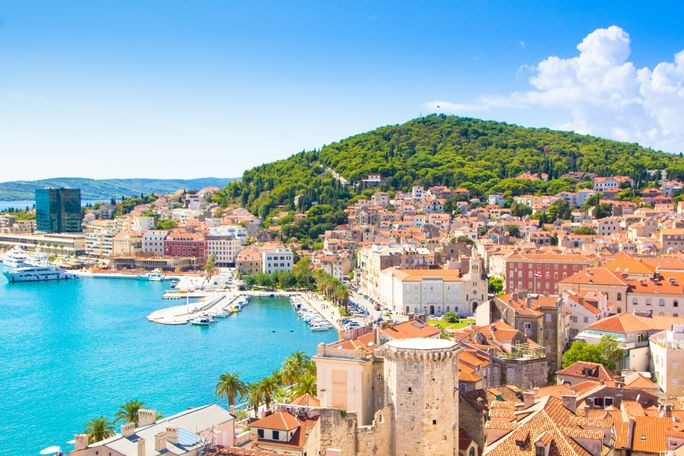
Split, Croatia (Photo Credit: Courtesy AdobeStock)
Croatia
Croatian destinations, such as Split and Hvar, are pushing back hard against unruly behavior. In Split, wearing swimwear—or worse, underwear—in public areas can lead to fines of €150 ($176). Hvar has also introduced quiet hours, and drinking in public may get you an on-the-spot penalty of €600 ($703).
The UNESCO World Heritage city of Dubrovnik has rolled out its own series of new rules as part of its “Respect the City” initiative. Visitors are now prohibited from walking around in swimwear, driving through the city without special authorization, eating or drinking near cultural landmarks, and climbing on the historic city walls. Breaking any of these rules can result in fines or even criminal charges.
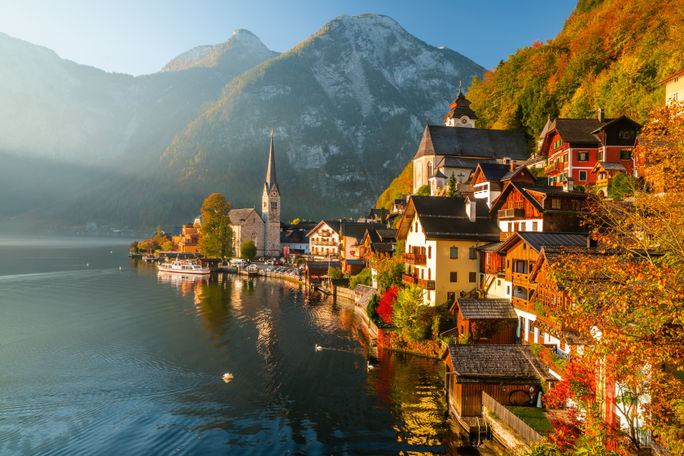
Hallstatt mountain village in Austria. (Photo Credit: Anton Petrus/Adobe)
Austria
In Hallstatt, a town so picturesque it’s said to have inspired Disney’s Frozen, selfie-related crowding prompted the installation of a temporary screen to discourage photo ops. And, tourists should note that dashcams are largely illegal in Austria. Due to privacy laws, using one could cost you up to €25,000 ($29,304).
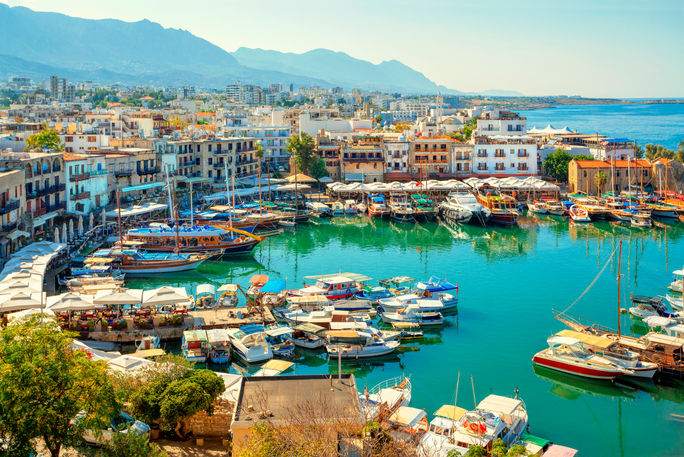
Kyrenia (Girne) old harbor on the northern coast of Cyprus. (Photo Credit: Adobe Stock/Vladimir Sazonov)
Cyprus
In Cyprus, eating or drinking anything behind the wheel—even just water—is illegal and considered a driving distraction. Getting caught could land you an €85 fine ($100), and local police take the rule seriously.

Prague (Photo Credit: Adobe Stock)
Czechia
Prague is working to move away from its reputation as Czechia’s party hotspot. The city has banned beer bikes, imposed noise restrictions in historic districts, and is stepping up enforcement against pub crawls, public drinking, and unruly bachelor or bachelorette celebrations. Even bars can be fined for serving alcohol to tourists who are already visibly intoxicated.
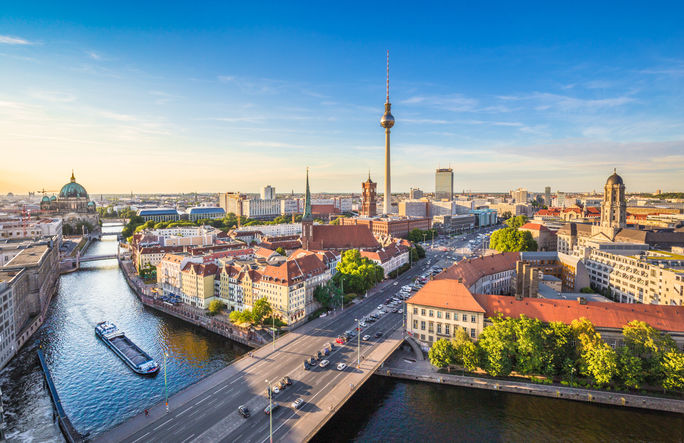
Berlin, Germany (Photo Credit: Courtesy AdobeStock)
Germany
In Germany, losing your temper behind the wheel can hit your wallet hard. Yelling insults or making offensive gestures, whether at other drivers or the police, is considered road rage and can result in fines of up to €4,000 ($4,689). The country is also tightening the reins on unruly tourist behavior, especially in cities like Berlin, where neighborhoods frustrated by party tourism are seeing stricter enforcement of noise limits and public drinking bans. And don’t cross the street carelessly—jaywalking is against the law.

Blooming lupine flowers on the Stokksnes headland, Iceland. (Photo Credit: Adobe Stock/Andrew Mayovskyy)
Iceland
Iceland is cracking down on damage to its delicate natural environment. Off-road driving is strictly prohibited, and violators may face fines of up to ISK 500,000 ($4,127).
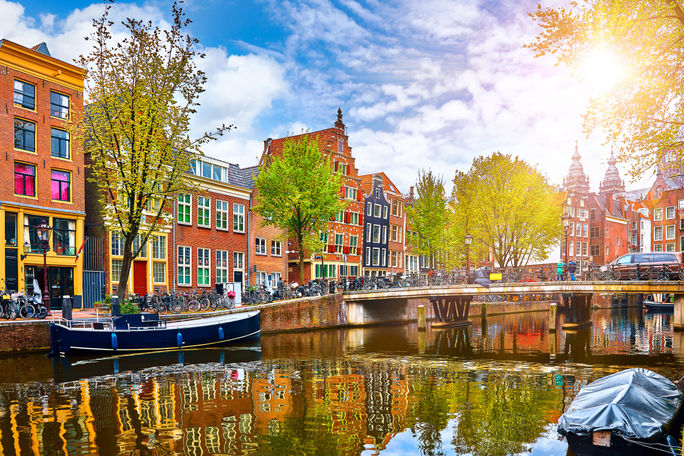
Historic buildings and canal in Amsterdam’s historic center. (Photo Credit: Adobe Stock/Yasonya)
The Netherlands
Amsterdam’s “Stay Away” campaign warns rowdy visitors to think twice before booking. Smoking cannabis on the streets of the Red Light District is banned, bars close earlier, and group tours are more tightly regulated. New hotel development has been banned, and residents are even suing shops that attract too much foot traffic.
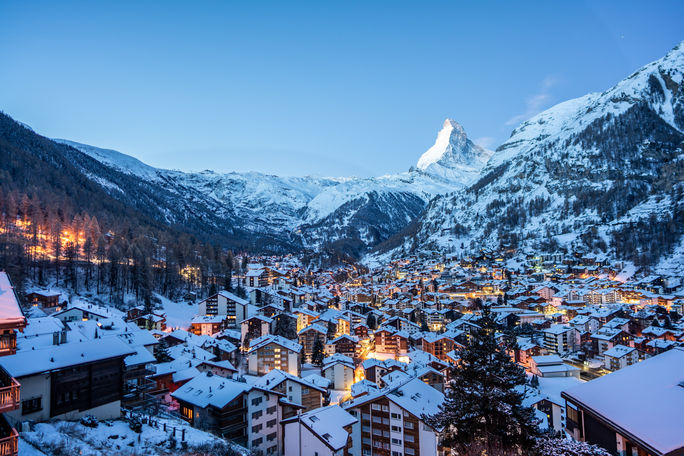
Zermatt, Switzerland, with Matterhorn mountain in the background. (Photo Credit: Adobe Stock/PnPy)
Switzerland
Strict environmental rules are in place to protect Switzerland’s postcard-perfect scenery. Littering can result in immediate fines, and excessive noise at night or leaving trash in public spaces can also incur costly penalties. In the mountain town of Zermatt, gas-powered vehicles are banned to maintain clean air, with electric taxis serving as the primary mode of transportation.
With Europe expecting a record-breaking wave of tourists in 2025, visitors are increasingly being encouraged—sometimes forcefully—to tread lightly. As the backlash against overtourism intensifies, rules that were once ignored are now being enforced with greater rigor.
For the latest travel news, updates and deals, subscribe to the daily TravelPulse newsletter.

